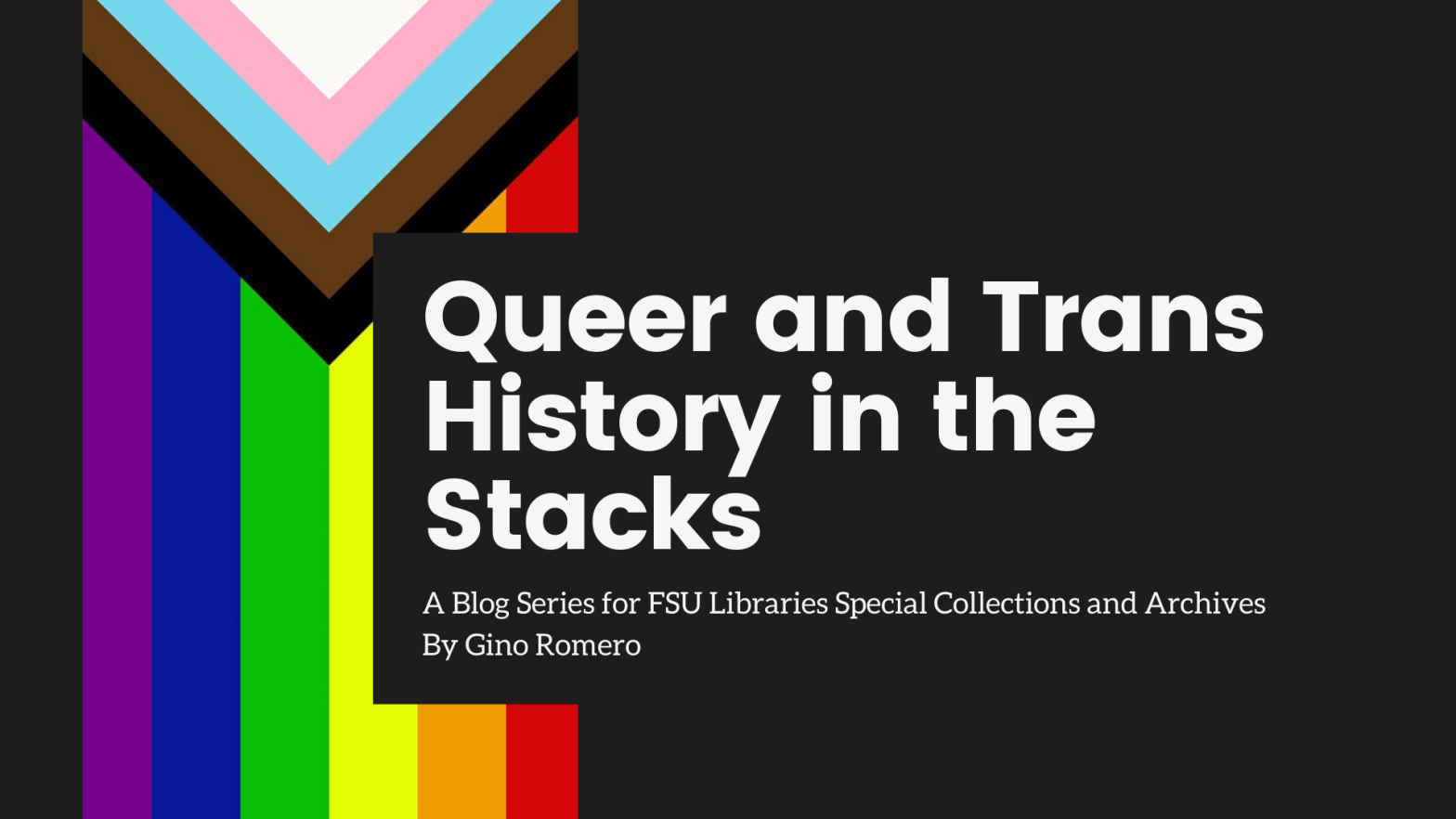
(she/her/hers)
For this post, I interviewed Kate McCormick in order to get a better understanding of the dynamics of Special Collections & Archives. Katie is one of the Associate Deans and has been with SCA for about nine years now (here’s a video of Katie discussing some of our collections on C-SPAN in 2014!). As a vital part of the library, and our leader in Special Collections & Archives, I wanted to get her opinion on how the division has progressed thus far and how they plan to continue to do so in regards to diversity and inclusion.
How would you describe FSU SCA when you first started?
“…People didn’t feel comfortable communicating [with each other]… There was one person who really wrote for the blog, and maybe it would happen once every couple of months. When I came on board, my general sense was that we were a department and a group of people with a lot of really great ideas and some fantastic materials, who had come a long way from where things has been, but who hadn’t gotten to a place to be able to organize to change more or to really work more as a team… We were definitely valued as (mostly) the fancy crown jewel group. Really all that mattered was the stuff… it didn’t matter what we were doing with it.”
How do you feel the lapse in communication affected diversity and inclusion?
“While I don’t have any direct evidence that it excluded people or helped create an environment that was exclusive, I do know that even with our staff at the time, there were times where it contributed to hostilities, frustrations, an environment where people didn’t feel able to speak or be comfortable in…Everybody just wanted to be comfortable with the people who were just like them that it definitely created some potentially hostile environments. Looking back, I recognize what a poor job we did, as a workplace and a community truly being inclusive, and not just in ways that are immediately visible.”
How diverse was SCA when you started?
“In Special Collections there was minimal diversity, certainly less than we have now… [For the libraries as a whole] as you go up in classification and pay, the diversity decreases. That was certainly true when I got here and that remains true.”
How would you rank SCA’s diversity and inclusion when you first started?
“…Squarely a 5, possibly in some arenas a 4. Not nothing, but I feel like no one was really thinking of it.”
And how would you describe it now?
“Maybe we’re approaching a 7, I feel like there’s been progress, but there’s still a long way to go in my opinion.”
What are some ways we can start addressing these issues? What are some tangible ways you are planning to enact?
“For me, some of the first places [is] forming the inclusive research services task force in Special Collections, pulling together a group to look at descriptive practices and applications, and what we’re doing with creating coordinated processing workflows. Putting these issues on the table from the beginning is really important… Right now because we’re primarily in an online environment, i think we have some time to negotiate and change our practices so when we are re-open to the public and people are physically coming in to the spaces, we have new forms, new trainings, people have gone through training that gives them a better sense of identity, communication, diversity.”
After my conversation with Katie, I feel optimistic about the direction we are heading in. Knowing how open Special Collections & Archives is about taking critique and trying to put it into action brought me comfort. I’m excited to see how these concerns are addressed and how the department will be putting Dynamic Inclusivity, one of Florida State University’s core values, at the forefront of their practice. I would like to give a big thank you to Katie McCormick for taking the time to do this post with me and for having these conversations!

